#reparation
Text
53 notes
·
View notes
Text

Il a été reconnu qu'aucune sourie n'a réussi à être réparée par un étudiant (même ingénieur).
11 notes
·
View notes
Photo
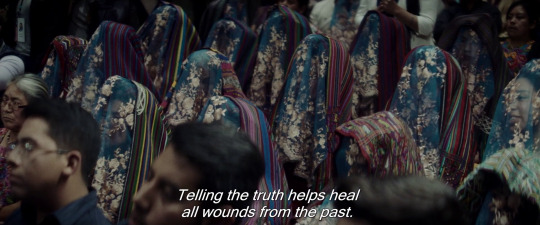
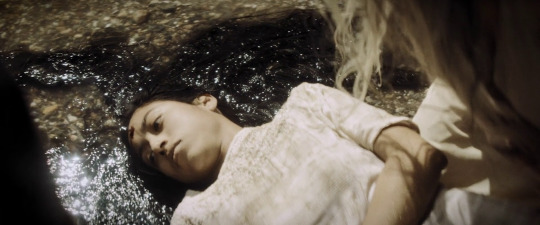



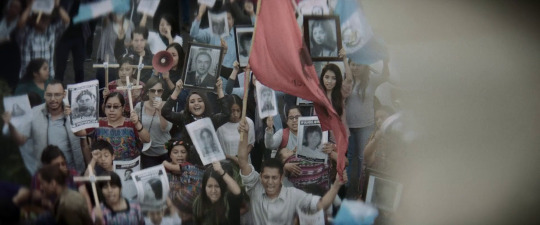


La llorona, 2019
#crime#horror#drama#la llorona#jayro bustamante#lisandro sanchez#maría mercedes coroy#julio diaz#reparation#halloween#this movie is so so good#an amazing movie about psychosocial trauma and political violence in south america#latin american cinema
76 notes
·
View notes
Note
I was re-reading Reparation for the millionth time because I am in love with your Slade/Dick medieval royalty AUs and I started wondering. How did Slade find out that Dick was innocent in that AU? Wade is mentioned when Dick notices he's not present at the negotiations so I assume Slade discovered he was a traitor but how did it all go down? And how did Slade feel once he realized Dick had been falsely accused?
What probably happened is that Wade decided, high on the success of kicking Dick out and starting a war, that he could remove the other obstacles to the throne. He starts with Joey, who has recently returned to court.
What he didn't count on was that Joey never trusted him, that Slade is fanatically protective of his children after what happened to Grant, and that his King is itching for someone to execute. That the news of Ra's al Ghul's scheming arrives in the aftermath of Slade's explosive fury makes it much easier for his council to accept a peace with Gotham.
Slade...doesn't really care much about the false accusations, he didn't put much stock in the rumors until Dick left, so he's more angry about Dick leaving than at the alleged adultery. Even with Wade's betrayal, Slade still thinks that Dick should've stayed and proven himself innocent than turned and fled.
12 notes
·
View notes
Photo

(Pinterest)
40 notes
·
View notes
Text
Prophecy for the End Time
PENANCE, PENANCE, PENANCE!
(We need to do penance not only for ourselves, for our own sins, but also make reparation for the sins of others if we seek to be spared from the coming chastisements.)
During the apparition on 13 July 1917 at Cova da Iria, the three children of Fatima saw an angel with a flaming sword, similar to the vision of the angel guarding the tree of life. (Genesis 3:22-24) In the vision presented to the three seers of Fatima an angel with a flaming sword hits the world three times proclaiming a time of penance.
“𝑰 𝒘𝒓𝒊𝒕𝒆 𝒊𝒏 𝒐𝒃𝒆𝒅𝒊𝒆𝒏𝒄𝒆 𝒕𝒐 𝒚𝒐𝒖, 𝒎𝒚 𝑮𝒐𝒅, 𝒘𝒉𝒐 𝒄𝒐𝒎𝒎𝒂𝒏𝒅 𝒎𝒆 𝒕𝒐 𝒅𝒐 𝒔𝒐 𝒕𝒉𝒓𝒐𝒖𝒈𝒉 𝒉𝒊𝒔 𝑬𝒙𝒄𝒆𝒍𝒍𝒆𝒏𝒄𝒚 𝒕𝒉𝒆 𝑩𝒊𝒔𝒉𝒐𝒑 𝒐𝒇 𝑳𝒆𝒊𝒓𝒊𝒂 𝒂𝒏𝒅 𝒕𝒉𝒓𝒐𝒖𝒈𝒉 𝒚𝒐𝒖𝒓 𝑴𝒐𝒔𝒕 𝑯𝒐𝒍𝒚 𝑴𝒐𝒕𝒉𝒆𝒓 𝒂𝒏𝒅 𝒎𝒊𝒏𝒆. 𝑨𝒇𝒕𝒆𝒓 𝒕𝒉𝒆 𝒕𝒘𝒐 𝒑𝒂𝒓𝒕𝒔 𝒘𝒉𝒊𝒄𝒉 𝑰 𝒉𝒂𝒗𝒆 𝒂𝒍𝒓𝒆𝒂𝒅𝒚 𝒆𝒙𝒑𝒍𝒂𝒊𝒏𝒆𝒅, 𝒂𝒕 𝒕𝒉𝒆 𝒍𝒆𝒇𝒕 𝒐𝒇 𝑶𝒖𝒓 𝑳𝒂𝒅𝒚 𝒂𝒏𝒅 𝒂 𝒍𝒊𝒕𝒕𝒍𝒆 𝒂𝒃𝒐𝒗𝒆, 𝒘𝒆 𝒔𝒂𝒘 𝒂𝒏 𝑨𝒏𝒈𝒆𝒍 𝒘𝒊𝒕𝒉 𝒂 𝒇𝒍𝒂𝒎𝒊𝒏𝒈 𝒔𝒘𝒐𝒓𝒅 𝒊𝒏 𝒉𝒊𝒔 𝒍𝒆𝒇𝒕 𝒉𝒂𝒏𝒅; 𝒇𝒍𝒂𝒔𝒉𝒊𝒏𝒈, 𝒊𝒕 𝒈𝒂𝒗𝒆 𝒐𝒖𝒕 𝒇𝒍𝒂𝒎𝒆𝒔 𝒕𝒉𝒂𝒕 𝒍𝒐𝒐𝒌𝒆𝒅 𝒂𝒔 𝒕𝒉𝒐𝒖𝒈𝒉 𝒕𝒉𝒆𝒚 𝒘𝒐𝒖𝒍𝒅 𝒔𝒆𝒕 𝒕𝒉𝒆 𝒘𝒐𝒓𝒍𝒅 𝒐𝒏 𝒇𝒊𝒓𝒆; 𝒃𝒖𝒕 𝒕𝒉𝒆𝒚 𝒅𝒊𝒆𝒅 𝒐𝒖𝒕 𝒊𝒏 𝒄𝒐𝒏𝒕𝒂𝒄𝒕 𝒘𝒊𝒕𝒉 𝒕𝒉𝒆 𝒔𝒑𝒍𝒆𝒏𝒅𝒐𝒓 𝒕𝒉𝒂𝒕 𝑶𝒖𝒓 𝑳𝒂𝒅𝒚 𝒓𝒂𝒅𝒊𝒂𝒕𝒆𝒅 𝒕𝒐𝒘𝒂𝒓𝒅𝒔 𝒉𝒊𝒎 𝒇𝒓𝒐𝒎 𝒉𝒆𝒓 𝒓𝒊𝒈𝒉𝒕 𝒉𝒂𝒏𝒅: 𝒑𝒐𝒊𝒏𝒕𝒊𝒏𝒈 𝒕𝒐 𝒕𝒉𝒆 𝒆𝒂𝒓𝒕𝒉 𝒘𝒊𝒕𝒉 𝒉𝒊𝒔 𝒓𝒊𝒈𝒉𝒕 𝒉𝒂𝒏𝒅, 𝒕𝒉𝒆 𝑨𝒏𝒈𝒆𝒍 𝒄𝒓𝒊𝒆𝒅 𝒐𝒖𝒕 𝒊𝒏 𝒂 𝒍𝒐𝒖𝒅 𝒗𝒐𝒊𝒄𝒆: ‘𝑷𝒆𝒏𝒂𝒏𝒄𝒆, 𝑷𝒆𝒏𝒂𝒏𝒄𝒆, 𝑷𝒆𝒏𝒂𝒏𝒄𝒆!'” 𝑺𝒓. 𝑳𝒖𝒄𝒊𝒂 𝑫𝒐𝒔 𝑺𝒂𝒏𝒕𝒐𝒔

4 notes
·
View notes
Text
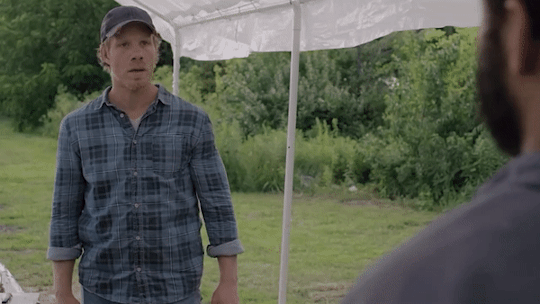


Marc Menchaca and Jon Huertas in REPARATION
34 notes
·
View notes
Text
The REAL American Psycho would have been Native American. Sorry to burst your bubble, white people....
#american psycho#john lennon#Patrick stump#christian bale#patrick bateman#wait... hes the master-bait-man?#reparation#guinea pig#you're weak. and you know what makes you weak? your loyalty to your pathetic friends!
8 notes
·
View notes
Text
HOMILY for 34th Sat per annum (II)
Apoc 22:1-7; Ps 94; Luke 21:34-36

The Church has its own liturgical rhythm and pace, and so, even as the world seems to gear up for Christmas and the new year, the Church’s Liturgy strikes a different tone as we stand on the cusp of Advent – she calls us to slow down and be watchful. As Jesus says in the Gospel, “watch yourselves” or, looking to a different translation, “take heed to yourselves.”
The sense is that we should look after ourselves, indeed, we should be watchful of our own hearts and be careful not to let our hearts be “coarsened.” For a coarsened heart, weighed down or panicked by temporal cares, and so seeking to escape from life’s worries through drunkenness and other sensual pleasures, is a heart that becomes less sensitive to God; we become less open to the many opportunities to receive his graces; less attuned to his coming among us, and indeed we’re do not notice God’s Presence in our lives.
Christ the divine Physician, therefore, is our cardiologist, who counsels us to watch ourselves, to guard our hearts, by seeking refuge in his Sacred Heart. Thus he calls on us to stay awake and pray at all times. Prayer, therefore, is not an after thought or a desperate measure, not something that we squeeze in between the other pressing engagements or the more entertaining pursuits that consume our time and capture our hearts. Rather, prayer is necessary for our spiritual health, like the exercise the cardiologist recommends, and so the Church’s Liturgy calls us to slow down, to retreat from the world’s demands, and to pray. We’re called to be like St John the Beloved Disciple, who leaned against the breast of the Lord, and so let the heartbeat of Jesus set the pace for our lives. For this is what prayer does to us.
As Pope Benedict XVI said in a letter he wrote to seminarians, but which applies to every one of us: “When the Lord tells us to “pray constantly”, he is obviously not asking us to recite endless prayers, but urging us never to lose our inner closeness to God. Praying means growing in this intimacy. So it is important that our day should begin and end with prayer; that we listen to God as the Scriptures are read; that we share with him our desires and our hopes, our joys and our troubles, our failures and our thanks for all his blessings, and thus keep him ever before us as the point of reference for our lives.” These words seem to me good advice at the close of another liturgical year, calling us to centre ourselves around the Lord, even as St John saw him enthroned at the centre of the heavenly city, and so from Christ flows life, and healing, and fruitfulness. We are called to become that city, with Christ enthroned in the centre, and his light illuminating our minds and our actions. Our daily prayer, therefore, is Maranatha; Come, Lord Jesus! Come, and be the centre of my life.
As always, our model in prayer and discipleship is the Blessed Virgin Mary, to whom the Lord Jesus came so perfectly and uniquely when she said to the angel, Fiat mihi secundum Verbum tuum. And so, on this final day of the liturgical year, we look to Our Lady. For it is from Mary that we learn to take heed of ourselves and to guard our hearts; to refine our motivations and desires; and to turn to God so that his light might shine upon us.
Fittingly, therefore, next Saturday as Advent begins, we shall observe the devotions and reparation asked of us by Our Lady of the Rosary at Fatima. Here in the Rosary Shrine we do this every first Saturday of the month throughout the year, with prayer and meditation before the Blessed Sacrament, pondering the Word of God in silence, examining our hearts and going to Confession, receiving Communion in reparation for sins against the Immaculate Heart of Mary, and then praying the Rosary together in the monthly Rosary procession as we carry blessed candles. These acts of reparation and prayer, prescribed by Our Lady, are intended to repair those hearts that have been coarsened; to attune us to God’s grace which convicts us of sin and converts us; and to fill us with the Presence of God through a worthy and well-prepared reception of the Sacraments.
Through the first Saturday devotions, we respond to the words of Christ in today’s Gospel: “Stay awake, praying at all times for the strength to survive all that is going to happen, and to stand with confidence before the Son of Man.” As ever, our Blessed Mother shows us the way to obey the Lord, and she leads us into a deeper intimacy with him.
10 notes
·
View notes
Text
Loopy couple's Sonnet (Verse)

A man and a woman riding bicycles on the street,
man riding woman's bike
Attracting and releasing
acted dangerously.
I glared
The two of them just passed by—
Loopy couple.
These guys are foreigners and have white skin. Probably Peruvian.
If I suffer actual harm,
Go out to the police and get a lot of reparations.
I'll make sure you can't stay in Japan.
after a commotion of love
Invisible Loopy couple around,
It's not worth living in Japan.
バカップルのソネット(韻文)
路上で、2代の自転車に乗っていた男女、
男が女の自転車を
引き付けたり離したりと、
危険な行為をしていた。
私は睨みつけたが
2人はそのまま通り過ぎて行った――
バカップル。
こいつらは外国人で肌は白い。たぶんペルー人だろう。
もし私が実害を受けたら、
警察に突き出し、がっぽり賠償金をふんだくる。
日本にいられないようにしてやる。
恋のから騒ぎの挙句
まわりの見えないバカップルは、
日本で生きていく価値はない。
(2023.06.03)
#Loopy couple#bicycles#glare#Peruvian#police#reparation#I'll make sure you can't stay in Japan.#sonnet#verse#babylman
2 notes
·
View notes
Text
New publication: Melanie Klein’s Narrative of an Adult Analysis
5th June 2023
This month’s post is a bit different from usual, as I am delighted to announce the publication of my new book, the latest – and most substantial – product of my research in the Melanie Klein archive. Melanie Klein’s Narrative of an Adult Analysis brings to light Klein’s work with an adult patient, Mr B, which took place between the years 1934 and 1949. While Klein’s 1961 Narrative of a Child Analysis provided a detailed record of the psychoanalysis of a child patient, Richard, there hasn’t previously been a similarly full account of her work with an adult patient.
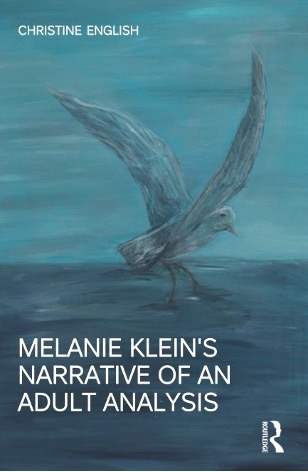
My new contribution to Klein scholarship builds on the valuable work that Elizabeth Spillius, Claudia Frank, John Steiner and Jane Milton, among others, have already done to illuminate Klein’s theories and clinical work. This record of Mr B’s analysis provides the reader with detailed clinical evidence in support of Klein’s ideas concerning the combined parental couple, phantasies about the inside of the maternal body, attacks on objects using bodily products as ‘weapons’, and the guilt that follows these attacks – which may go hand in hand with a terror of retribution by damaged objects.
Klein’s work with Mr B also reveals so much about the nature of the fundamental conflict between love and hate, which, as Klein saw it, is first experienced in connection with the breast. In this account of an analysis we can see the terrible implications where such a conflict is not well worked out in development. The book also reveals Klein’s great insights into what may drive a negative therapeutic reaction, and into the dynamics of, and obstacles to, mourning. There is very moving material on the impact of the unexpected arrival of a sibling, and the way in which love can become almost entirely obscured where hatred has instead been nurtured through grievance. Love, however, as Klein’s work with Mr B shows, may in turn be liberated through the rigorous analysis of aggressive impulses and hatred.
The following excerpt, from Chapter 2, gives a flavour of what readers can expect from the book. Here, Klein is describing a difficult but important period in Mr B’s analysis, which begins when he bumps into another patient of hers, a child. Klein writes:
Confidence in me had increased, though this easily changed one day to give place to full distrust and to accusations which we could easily connect with the attitude towards mother and nurse. I had been able to make an arrangement by which Mr B did not meet either the patient before him, or the patient after him. I made a special point not to alter his hour since the definite possession of this special hour meant very much to him, and seemed to be partly a compensation for the great frustration which, in repetition of the old situation, analysis brought to him. But [at some point] I had to alter this arrangement for a child patient who could not come earlier. To begin with Mr B seemed to take it reasonably, but he could not maintain this attitude. He became silent only to break out in accusations about how I had disappointed him and let him down. I had promised him this hour and he asked me to remember how strongly he had felt about this promise. When I pointed out to him that he could still have his hour, but that I could not then help his meeting the child, he seemed to take it fairly reasonably.
The next day he came a few minutes earlier, obviously in order to avoid meeting the child, and he waited in the waiting room until the child had gone. He heard me talk with the child in the hall, since I escorted this child to the door partly to make quite sure that he would leave the house, as he was very reluctant to do so. The child, who had meanwhile developed similar feelings towards the grown-up patient as Mr B had towards him, said before he left, pointing at Mr B’s hat which he saw in the hall, ‘oh, that man has arrived’, a remark which was heard by Mr B in the waiting room. Mr B again tried to take it reasonably and attempted a joke about the child, obviously disliking him, but he then became silent and a very critical part of his analysis began. Near the end of the hour, he broke the silence only to accuse me, full of hate and indignation, of having let him down and broken my promise to keep this particular hour for him. When I pointed out that I understood the difficulties which had arisen out of the presence of the other patient, but that I had actually not altered his hour, Mr B replied that I had actually kept him waiting. It is true [that this was] only for a very short while, actually one minute, but still this waiting occurred in his own hour. It appeared that the old situation, namely the unexpected arrival of the sister, had been reactivated with full strength, and Mr B recognized it himself… He even said that had I announced the child to him before he met him suddenly, it would not have made so much difference, because he would nevertheless have felt the deprivation quite as strongly. It [would] not [have] relieve[d] the feelings roused in him. Analysis had become absolutely bad. Everything that I had ever interpreted was wrong. Mr B felt hopeless and wanted to break off his analysis. When, after my interpretation of the whole situation something seemed to loosen, he said ‘you will not be able to do anything because my army is ready and I am fully on its side’.
Klein’s notes continue:
During the next few days Mr B came very late, nearly at the end of his hour, so that I could see him only for a few minutes. He had repudiated my suggestion to move his hour 10 minutes later so that he would not meet the child because, [he said,] that would mean that he had no more the same hour, [that the hour would be] no more his own. Still, he came every day, although during the day he always made up his mind not to come at all and to break off. But those few minutes we had and to which I was able to add another 10 minutes or so of extra time, gave me the possibility of analysing the situation. I may mention that Mr B felt very guilty for coming so late, for keeping me waiting and for losing so much of his time and accepting extra time, and he watched very anxiously my reaction to all this. He agreed with me that his coming so late was partly to show that he would not keep to time since I had not done so, at least this is how he felt, but I did not stress this point much. I showed him, both in my attitude and in my interpretations, that I quite understood that he could not help staying away since there was too much anxiety connected with the remote possibility of meeting the child, and that altogether he could not bear to be with me for the full time. It certainly relieved some anxiety that I said that we would just have to be patient and do at the moment as much work as we could. I had generally interpreted that the main thing was not his disappointment, but the anxiety aroused in connection with his aggression, [that arose] both against the child and against me. I substantiated this with a few remarks he had made. He had said that even if I happened to abolish this child it would not help now any more. In one of these short sessions, he had spoken of feeling like falling into a well with burning pitch and of disaster all around him. He had not lied down, or if so, had soon got up again and sat further away from me or was even standing. After an interpretation he had quoted a line of Coleridge, ‘if we fall out with those we love it works like poison on the brain.’ He had spoken of the kettle in him which would boil over and which he could not control. I could relate all this to former material in which his words and thoughts were equated to attacks with burning and poisoning, and I interpreted his anxiety of meeting the child on the grounds of his destructive wishes against this child and his anxiety of abolishing the child directly – as well as of the child being destroyed because of his secretive sadistic attacks against it.
Klein quotes this line from Coleridge (which is slightly misquoted by Mr B) in her 1937 paper, ‘Love, Guilt and Reparation’. There, she writes of the concern and guilt one may experience upon feeling hatred, at times, towards a loved one. I think she must have had Mr B in mind when she included this quotation. In the notes above Mr B rages at Klein, whose arrangements have provoked the re-emergence in him of very early, unbearable feelings of displacement and hatred. He now feels ‘on a razor’s edge’ with respect to the analysis, just as he had felt all his life in relation to his mother. Klein’s understanding clearly helps Mr B to cling on until the emotional storm is worked through.
The cover picture of the book was painted by Beccy Kean, and is called Stormy Petrel*. It was inspired by an extremely poignant moment in Mr B’s analysis: his painfully moving description of this tiny seabird which struggles so much to get to its young and Klein’s connecting of this to Mr B’s experience of his mother, whom he felt had struggled so much to feed and nurture him. It is remarkable to understand the ways in which Mr B’s relations with both parents are revised in the course of his analysis with Klein.
* In Klein’s notes, she writes ‘stormy petrel’, though the correct name of the bird is Storm Petrel. Mr B, who was so knowledgeable about the natural world, presumably knew this. We cannot know for certain which term he used. The term ‘stormy petrel’, however, was once used to denote ‘a person who brings or portends trouble’ (Collins English Dictionary), deriving apparently from a belief held by sailors that storm petrels foretold or caused bad weather at sea. One can imagine Mr B may also have used this term, which seems not unconnected with his experience of his mother.
**
Praise for the book:
'This is a formidable work on the source of Melanie Klein’s ideas that provides a fascinating picture of Klein as a clinician, and sheds light on many of the deepest questions raised by psychoanalysis. Aptly entitled Narrative of an Adult Analysis, this book may come to rival the Narrative of a Child Analysis as a means of understanding Klein’s work.' (John Steiner, Training and Supervising Analyst, British Psychoanalytical Society)
'Christine English has produced a book of tremendous interest and major importance. It is also gripping to read. This book is the first and for now the only account of Melanie Klein’s day-to-day psychoanalytic treatment of an adult patient, and it is enthralling.' (Priscilla Roth, Training and Supervising Analyst, British Psychoanalytical Society)
'Christine English has taken a hugely important step forward in Klein studies. Tapping a rich seam in the Klein archive, she shows in detail how Klein worked with an adult patient, Mr B. This rare and moving account of an adult analysis deserves to become as famous as Klein’s analysis of her child patient, Richard.' (Jane Milton, Training and Supervising Analyst, British Psychoanalytical Society)
#melanie klein#psychoanalysis#routledge#mourning#unconscious phantasy#psychotherapy#anxiety#reparation
6 notes
·
View notes
Quote
Ms. Bailey argued that re-purposing this agricultural knowledge could help the Geechee residents still living on Sapelo to save their land and it would take all kinds of people working in solidarity, including me, to make this possible. She said that in order to save the land, for her people to save themselves, Sapelo was going to have to be re-created, the land was going to have to be re-imagined, the resources re-directed, the knowledge re-calibrated, ultimately she said the earth itself was going to have to be created anew and it is out of her imagining of a total and complete transformation of space that we started to talk about the idea of “re-Earthing”. I see her notion of re-Earthing in line with Wright’s (2019) argument about how marronage constitutes the “production of an alternative geography”. By re Earthing she was imagining a re-configuration of the power, land and outcomes of a people and the world they live in. Re-Earthing is a politics of reparation as Bailey imagined it, one that was based on a common effort on common lands. It was then I began to see how Bailey saw sugarcane as a seraph lance of faith and imagined alternative political ecologies. It was also through these conversations I started to connect re-Earthing with something Clyde Woods had discussed nearly a decade earlier. On 26 March 2009, on a panel organised to discuss the 25th Anniversary of Neil Smith’s Uneven Development at the Las Vegas AAG, Woods said that “a plantation can be a commons, a ghetto can be a place of refuge and resistance, affirmation”. Speaking to what others since have helped elucidate around the Black geographic power relating to marronage (Bledsoe 2017; Wright 2019), Woods helped situate what had largely been European political economic theory within the Black geographic tradition of abolitionist politics
Nik Heynen in Antipode: A Radical Journal of Geography doi:10.1111/anti.12631 “A plantation can be a commons”:
Re-Earthing Sapelo Island through Abolition Ecology The 2018 Neil Smith Lecture
I read the article by way of a copy on Heynen’s Web site, here is a link to a page with Tag: Sapelo Island
7 notes
·
View notes
Text
Interested on Fixie world, so I try to repair this old Fixie. It maybe old, but still useable, perfect for learning and falls. 😂
5 notes
·
View notes
Text
Réparer une fermeture éclair
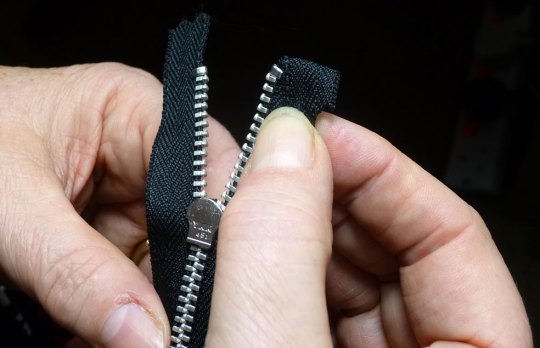
Apprenez à réparer une fermeture éclair, grâce à des solutions pratiques et faciles à réaliser, pour chaque type de problème.
0 notes
